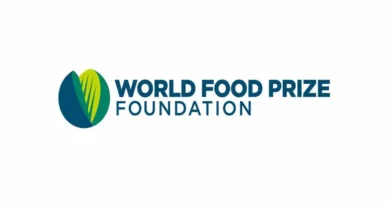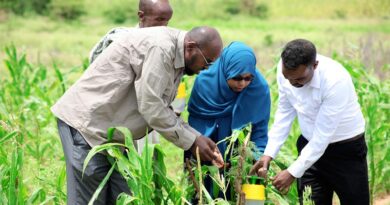Circularity in integrated agricultural systems may be key to mitigating greenhouse gas emissions
“We will test a digital Monitoring, Reporting and Verification (MVR) system developed by the Institute and its application in quantifying and mitigating GHG emissions. We will compare and discuss our cases with the participating farmers at different levels of detail, through both circularity and ecological functioning indicators to discover general lessons for enhancing circularity at the farm level”
06 April 2022, UK: Intensification and the separation of crops, livestock and forestry production systems in agriculture contributes greatly to climate change and biodiversity loss. A new 1.33 million European funded project, co-ordinated by researchers at the James Hutton Institute, will aim to find measures that can improve circularity in crop-forest-livestock integrated systems and mitigate greenhouse gas (GHG) emission.
The project, Synergies in integrated systems: Improving resource use efficiency while mitigating GHG emissions through well-informed decisions about circularity (SENSE), will bring together 10 Institutions from 7 countries, 4 from Europe, and 3 from South America. The James Hutton Institute’s climate-positive research farm at Glensaugh will form one of the case study locations for the project.
Integrated crop-livestock-forestry systems offer multiple opportunities to reduce the environmental impact of agricultural production systems. Circular systems have been proposed to increase resource use efficiency in a more sustainable way than conventional systems. Therefore, bringing in circularity contributes to minimising the environmental footprint of agriculture.
SENSE will conduct case studies in the 7 countries involved in the project, contrasting the scenarios with regards to carbon, nutrients, water, and biomass flows. The project will compare the circularity scenarios according to their potential for mitigating greenhouse gases (GHG) emissions. The resilience of farm systems under climate change impacts will also be compared.
Dr Jagadeesh Yeluripati, project coordinator, and member of the James Hutton Institute’s Information and Computational Sciences department explains: “We will test a digital Monitoring, Reporting and Verification (MVR) system developed by the Institute and its application in quantifying and mitigating GHG emissions. We will compare and discuss our cases with the participating farmers at different levels of detail, through both circularity and ecological functioning indicators to discover general lessons for enhancing circularity at the farm level.”
Dr Elena Testani, a researcher at CREA-Research Centre for Agriculture and Environment (Italian partners) in Rome, said: “We will assess integrated systems functioning in relation to C storage, nutrient cycling and GHG emission mitigation. The measurement of ecological functioning indicators in the case studies before and after the introduced management adjustments will trace their direction toward circularity”.
In South America, integrated farming systems have been increasingly adopted in Argentina, Uruguay and Brazil, the latter considering them in public policies as an adaptation strategy and to mitigate GHG emissions in agriculture. SENSE will create information and methodologies to further support these public policies, mainly by enhancing the sustainability of integrated systems through better circularity.
Beata Madari, a researcher from EMBRAPA (Brazilian Agricultural Research Corporation), explains: “With joint actions between European and South American institutions, the studies carried out within SENSE will also create the opportunity to integrate the views of European Union and Latin American farmers as a way of contributing to the construction of European legislation that regulates issues related to the green economy. “
SENSE will demonstrate a novel solution for improved land management systems, building knowledge through the linkage between sensors and High-Performance Computing (HPC)-based data analysis, supported by modelling and visualisation to meet farmer’s needs to attain net zero GHG emissions.
The outcomes of the project will contribute to the European Farm to Fork Strategy and to crosscutting actions of the European Circular Economy Action Plan. Circularity is considered a prerequisite for climate neutrality but bears potentially negative outcomes for other grand societal challenges. SENSE will provide guidance for informed circularity decisions at farm level that consider the trade-offs with other sustainability goals.















